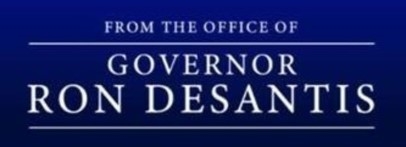New Florida legislation will provide Floridians with more mental health and substance abuse resources
Tampa, Florida — On June 25, 2025, Governor Ron DeSantis signed Florida Senate Bills 1620 and 168, which will provide Floridians with more resources for mental health and substance abuse treatment. The governor also announced that the Florida Mental Health Institute at the University of South Florida will be renamed the “Senator Darryl E. Rouson Center for Substance Abuse and Mental Health Research” in honor of the senator’s service to the State of Florida on mental health and substance abuse treatment.
“Florida is leading the nation in delivering meaningful solutions to tackle these complex issues and help improve people's lives,” said Governor Ron DeSantis. “I was also pleased to announce the naming of the “Senator Darryl E. Rouson Center for Substance Abuse and Mental Health Research” at USF in recognition of his leadership. As the nation’s largest behavioral health services research institute, the Rouson Center will continue its cutting-edge research to help transform the lives of people struggling with addiction and mental health.”
SB 1620 implements key recommendations made by Florida’s Commission on Mental Health and Substance Use Disorder.
- The bill standardizes clinical mental health assessments used by providers and school mental health programs so that treatment decisions can be based on real, measurable needs.
- The bill also improves discharge planning from treatment facilities, requiring plans to address access to long-acting injectable medications when clinically appropriate.
- For seniors, the bill directs the Florida Department of Children and Families to build out specialized mobile crisis response services, ensuring that older Floridians are not left behind during their moments of greatest need.
- To expand access in our schools, the bill mandates biennial reviews of telehealth availability, with a focus on rural and underserved areas.
- And to meet demand for care, the bill invests in the behavioral health workforce—supporting new training programs, professional stipends, and workforce development projects across the state.
- Allows counties and municipalities to establish misdemeanor mental health diversion programs and pretrial felony diversion programs.
- Gives sheriffs, courts, and treatment providers a clear process for routing people with serious mental illness out of the criminal justice system and into care.
- Expands the Criminal Justice, Mental Health, and Substance Abuse Reinvestment Grant Program to include a new focus on veteran treatment court programs and emergency responder training.
- Requires mental health evaluations for individuals with a history of incompetency adjudications before they’re placed on probation and returned to society, closing a dangerous loophole.
